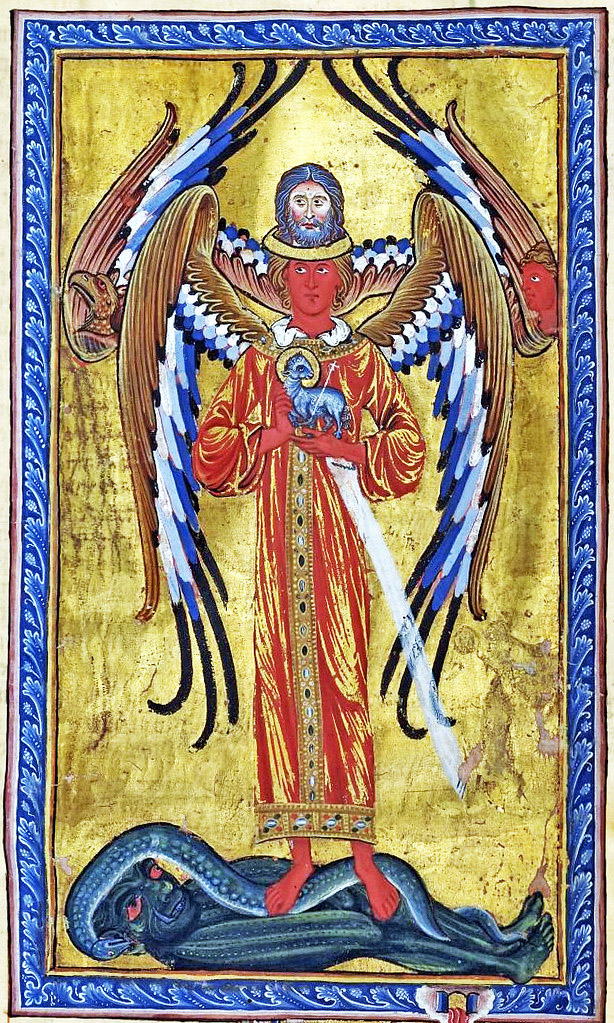Hampstead Collective – Fifth Concert – Sacred Meditation – Monday 28th September at 7.00 pm
Event Five: O Resplendent Jewel
A Sacred Meditation on Hildegard of Bingen’s vision of divine love, wisdom, and power
Christine Buras, soprano
Jess Dandy, contralto
Margaret Pritchard Houston, reader
Monday 28th September 7pm, Hampstead Parish Church, in person and online
“I am the fiery life of divine substance, I blaze above the beauty of the fields, I shine in the waters, I burn in sun, moon, and stars. And I awaken all to life with every wind of the air, as with invisible life that sustains everything.”
Next week’s Start the Week with The Hampstead Collective is a Sacred Meditation, following the Benedictine Threefold Progression of Reading, Music as Meditation, and Prayer. It was the polymath, Hildegard of Bingen’s Feast Day on 17th September, and we wanted to mark that in some way, so, complemented by her own chant, we’ve taken as our touchstone ‘a vision of such mystery and power that I trembled through and through’ from the end of her life, from her final offering, arguably the apotheosis of her spiritual experience, ‘The Book of Divine Works’.
In it, Hildegard sees the image of a human figure – a woman, her regard direct and unapologetic, pulsating with a life force all vermilion and gold, her face, she says, ‘of such beauty and brightness that I could more easily have stared at the sun’. At once the incarnation of divine power, wisdom, and love, this woman is a living cosmology, the ‘supreme fire and energy’, which enlivens us all as creatures of God’s creation, and ‘mirrors of His divinity’. Against a contemporary asceticism, Hildegard’s cosmology was shocking in its literal embodiment of a living, visceral, impassioned existence. It is not, she argues, through deprivation or self-denial, but through a full-hearted, and full-throated engagement with all parts of our experience – intellectual, emotional, and cosmic, that we are to honour the Creator, and truly realise His intentions for us, which, she claims, He ‘foreordained….before the beginning of the world’.
Hildegard’s visions sear themselves onto our consciousness, and call us to ‘inscend’, to feel into the true materiality of our existence – mountain, ocean, flora, fauna, to ‘flood’ ourselves with ‘the depths of God’s mysteries’. They are bold, elaborate, ‘dripping’, or even ‘sweating’ – as she often writes – with sapphire and gold. She is at pains to point out however that she is the mere vessel for such messages. She refers to herself as a ‘feeble form’ – and we do know that she suffered from a variety of health problems throughout her life, beginning in childhood; the neurologist Oliver Sacks has even gone so far as to claim that her visions may even have been the direct result of what we now recognise as severe migraines. Some might claim this line of argument was a tactical necessity of her sex, and it is true that it was very dangerous for medieval women to write, or display agency of any kind, as evidenced by the fate of Marguerite Porete a century later for example, but in some ways, the notion of Hildegard as a vessel accords with her own cosmology, and does not actually diminish her power. Human beings in Hildegard’s universe are mirrors of divinity, comprising the Trinity -‘the sound and life and creativity of all within their life’. God the Father is the intellect, his ‘greatest gift’ to us, God the Son is the ‘heart’, the love that ‘abounds in all things’, and God the Holy Spirit, is the ‘mighty course’ of wisdom which interweaves, binds together heart and mind, and is the ‘divine substance’ of the cosmos. It behoves us, and is already within us, therefore, as mirrors of divinity, to be as living examples of the Trinity. Furthermore, if God is the creator, and we are in His image, we too are creators. Hildegard exemplifies this: she cannot hold within her ‘inner eye’ the weight of the depth of her own heart and mind. She brings forth ‘Wisdom’s inspiration’ through music, poetry, and visual art – using symbolism, allegory, and metaphor to weave her sapiential ‘tunic”, to hold what she is, and what we are, as members of God’s creation.
If you want to listen to the concert live in church you can book a ticket through Eventbrite at https://www.eventbrite.com/o/the-hampstead-collective-30975107523. Or you can watch on Facebook live via The Hampstead Collective Facebook page
